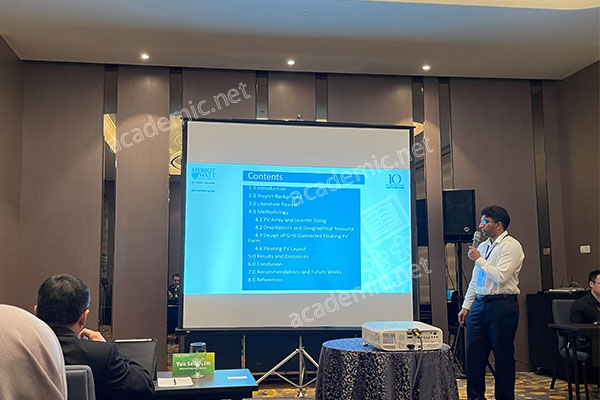Guide to Successful Conference Papers Submission
Submitting a paper to an academic conference is a key step in disseminating your research and gaining recognition within your field. Whether you're submitting for the first time or looking to refine your approach, understanding the submission process is essential to ensure your work stands out. This guide will walk you through the crucial steps for a successful conference paper submission, helping you maximize your chances of acceptance and showcasing your work to a global audience.

Understanding the Conference Paper Submission Process
Each academic conference typically has its own submission guidelines, which can vary depending on the event, discipline, and format. However, the general process remains consistent across most conferences:
-
Call for Papers (CFP) Review:
Before submitting, carefully read the Call for Papers (CFP) to ensure your research aligns with the conference’s theme and scope. The CFP will provide key information about submission deadlines, paper formatting, and specific topics the conference is focused on. Ignoring these details could lead to rejection, even if your paper is of high quality. -
Prepare Your Paper:
Conferences often have strict formatting guidelines, including word count, citation style, and document layout. Make sure your paper meets all these requirements to avoid disqualification. Additionally, focus on making your paper clear, concise, and engaging—emphasizing the significance of your research and its potential impact on the field. -
Create a Compelling Abstract:
Many conferences require a brief abstract (typically 200-300 words) along with the full paper submission. The abstract is crucial because it serves as the first point of contact for reviewers. Craft a concise yet informative abstract that highlights the objectives, methodology, and key findings of your research. A strong abstract can greatly influence the likelihood of acceptance. -
Submit Your Paper:
Most conferences use an online submission system where you’ll upload your paper and abstract. Be sure to follow the submission instructions carefully and double-check that your file is in the correct format (usually PDF or Word). Additionally, ensure you meet the deadline, as late submissions are often rejected without exception. -
Review and Feedback:
After submission, your paper will be reviewed by experts in your field. The review process may take several weeks, and the feedback you receive can help you refine your research. In some cases, reviewers may ask for revisions or suggest improvements before acceptance. This feedback is valuable, so be prepared to make necessary adjustments.
Common Mistakes to Avoid During Paper Submission
-
Missing Submission Deadlines:
Deadlines are strict. Missing a submission deadline is one of the most common reasons for rejection. Set reminders and plan ahead to ensure your paper is submitted well before the cutoff date. -
Not Following Formatting Guidelines:
Failure to adhere to the submission guidelines, such as formatting, citation style, and paper length, can result in immediate disqualification. Review the guidelines carefully to ensure compliance. -
Weak Abstract or Introduction:
A weak or unclear abstract can make it difficult for reviewers to assess your paper's value. Ensure your abstract is succinct, engaging, and accurately reflects the content of your paper. -
Lack of Clarity and Structure:
Well-structured papers are easier to follow and more likely to be accepted. Ensure that your paper has a clear introduction, methodology, results, and conclusion. Each section should flow logically and provide a clear narrative of your research.
Maximizing Your Chances of Acceptance
-
Tailor Your Paper to the Conference Theme:
The more closely your research aligns with the conference theme, the higher the chance of acceptance. Take the time to understand the conference's focus and tailor your submission to fit its specific topics. -
Engage with the Conference Organizers:
Some conferences may allow you to contact the organizers with questions about your paper before submission. Don't hesitate to reach out if you need clarification on any aspect of the submission process. -
Proofread and Peer Review:
Before submitting, ensure that your paper is free from errors and is well-polished. Having a colleague or mentor review your work can provide valuable feedback and catch mistakes you may have missed.
Conclusion
Submitting a paper to an academic conference is an exciting step in advancing your research career. By following the submission guidelines closely, crafting a compelling abstract, and ensuring your paper is well-prepared, you can significantly increase your chances of acceptance. For up-to-date information on upcoming conferences and their CFPs, visit academic.net, where you can discover the best opportunities to showcase your work and engage with the academic community. Start planning your submission today and take the next step in sharing your research with the world!
